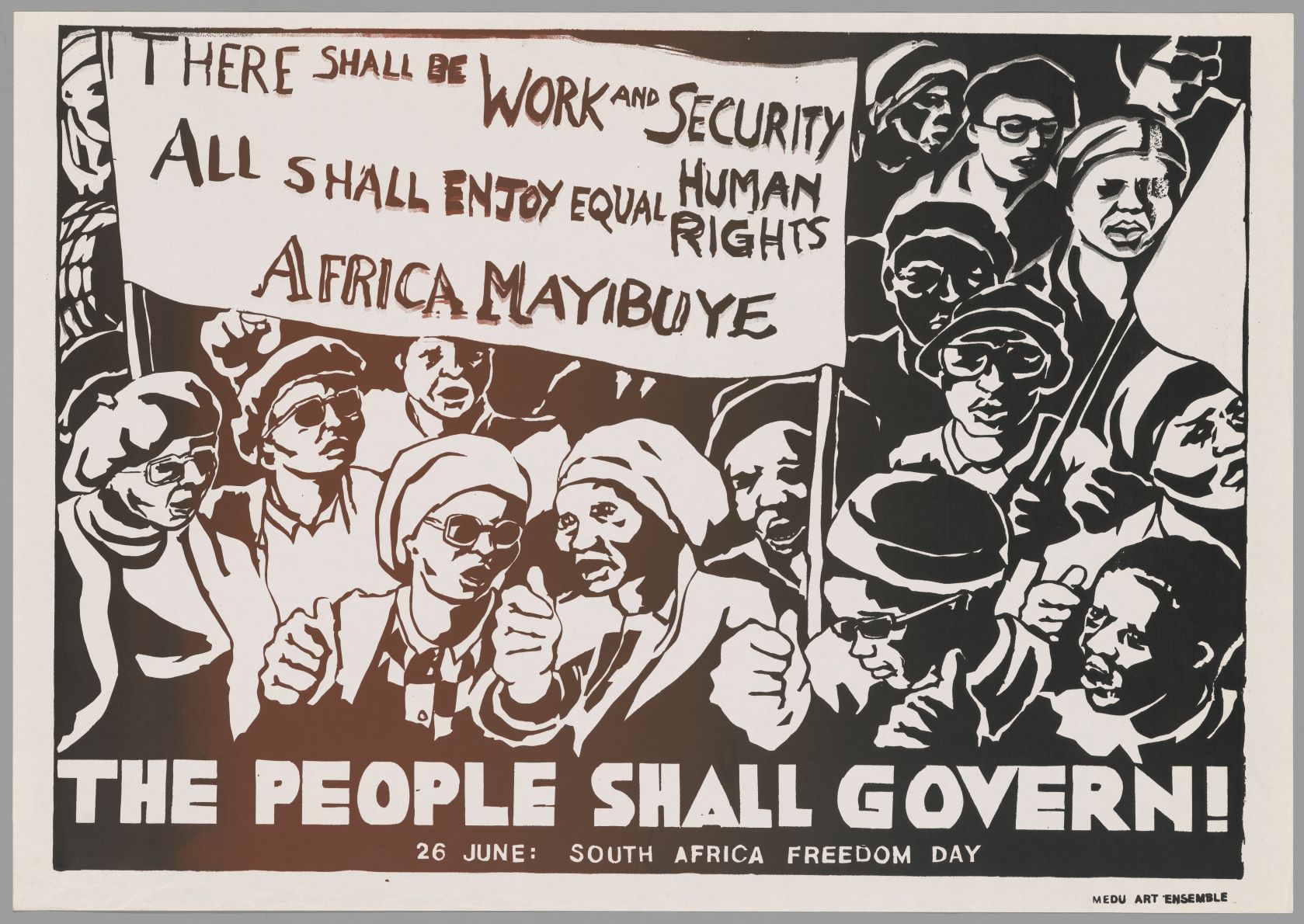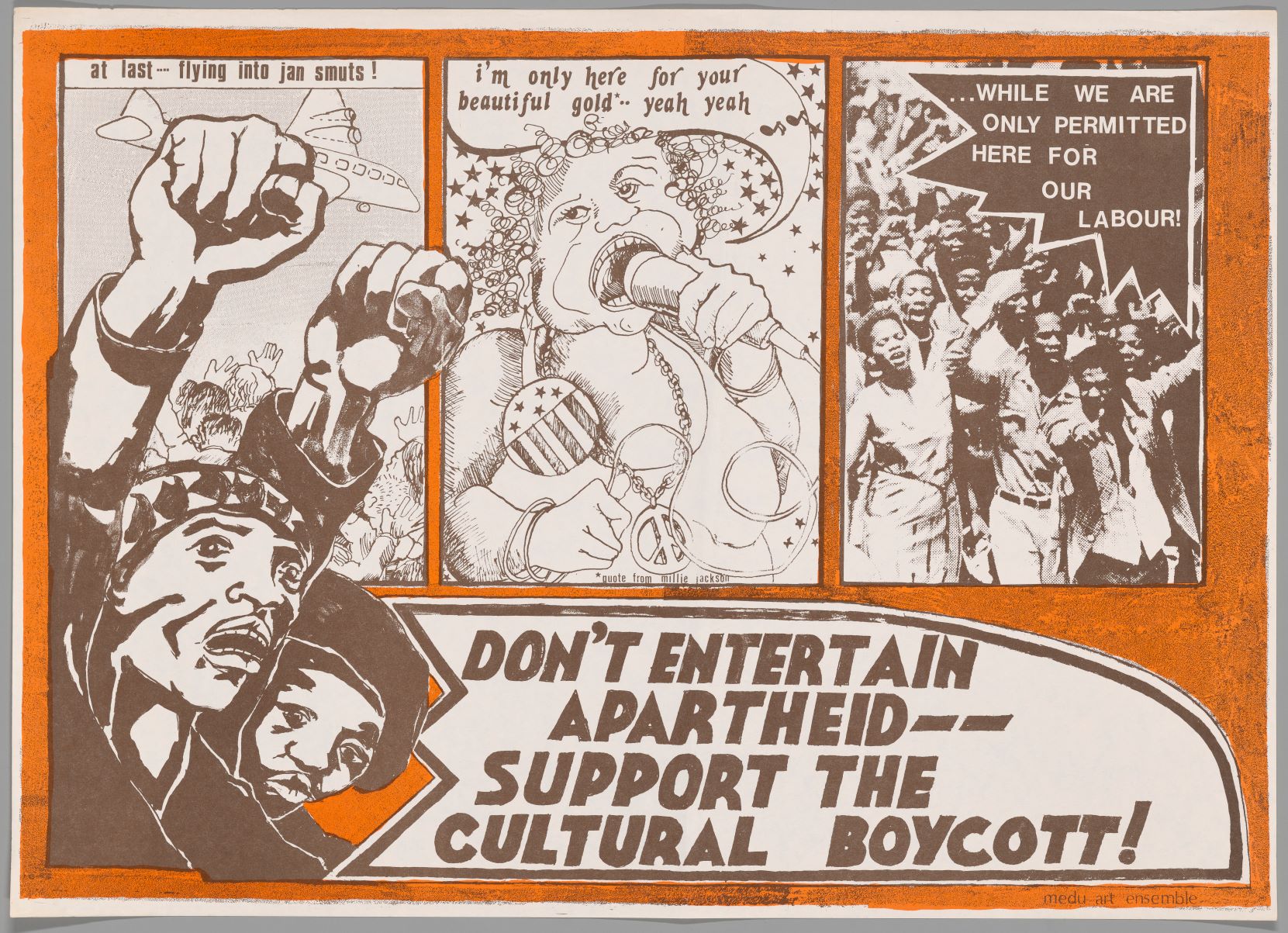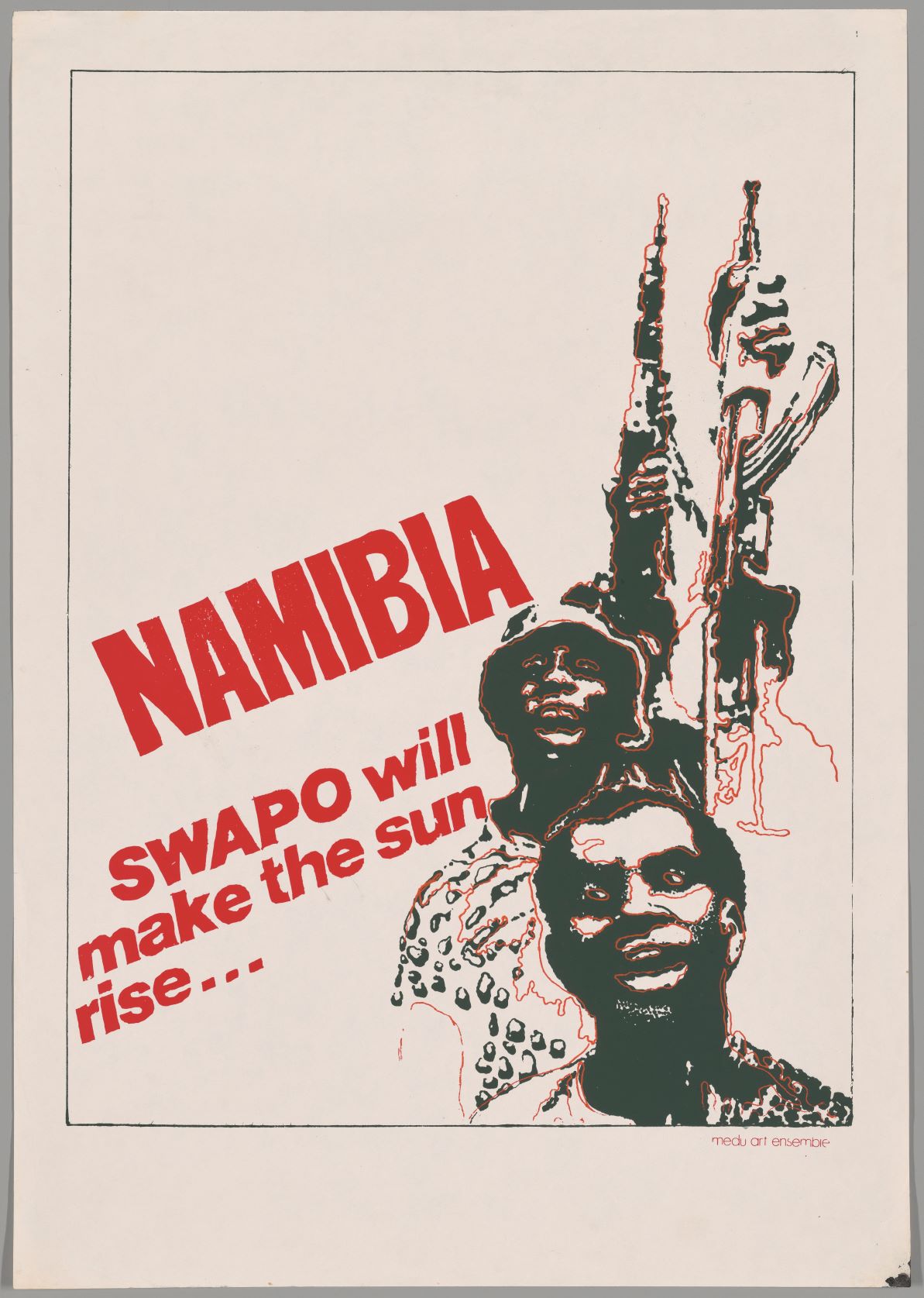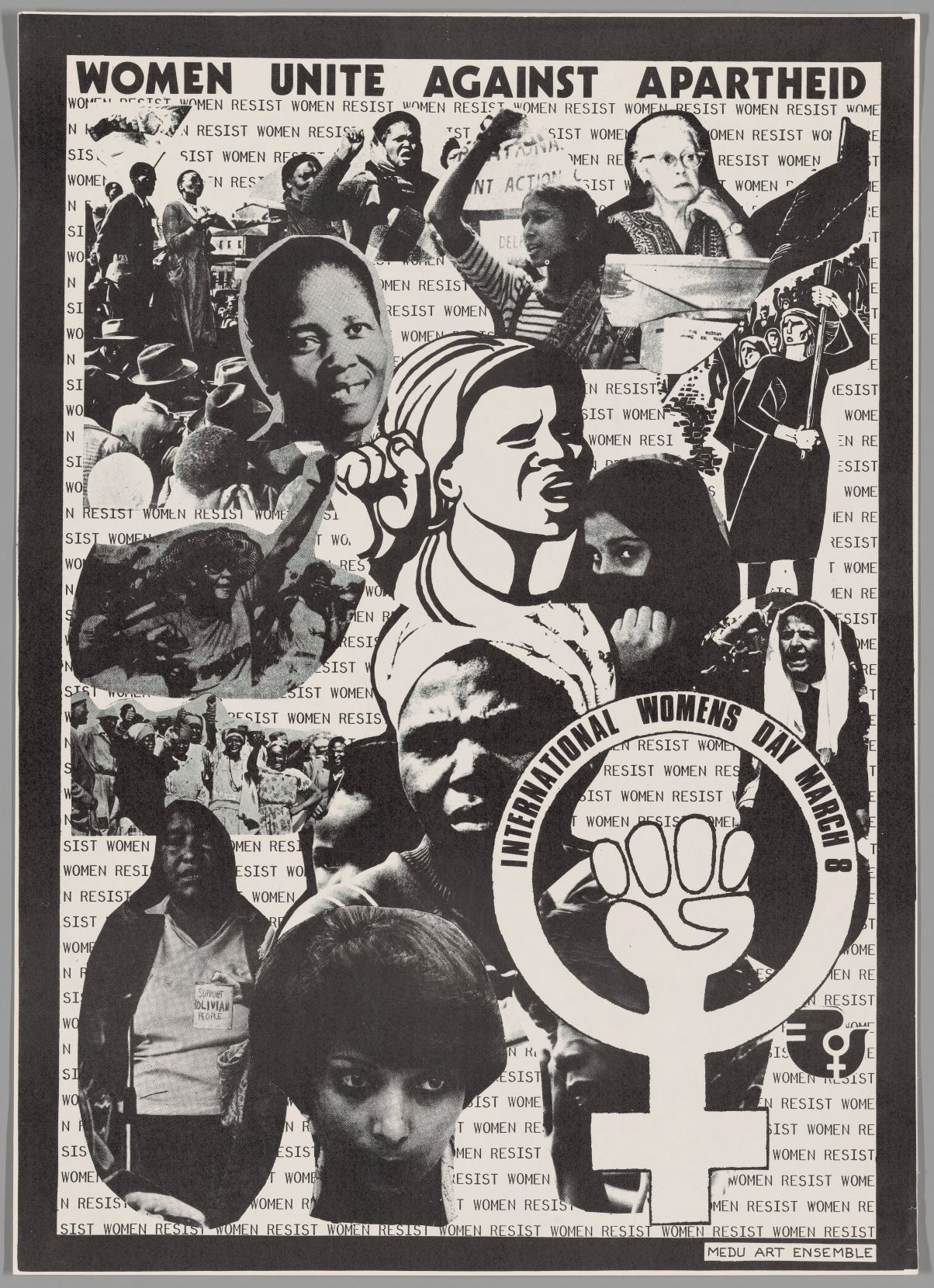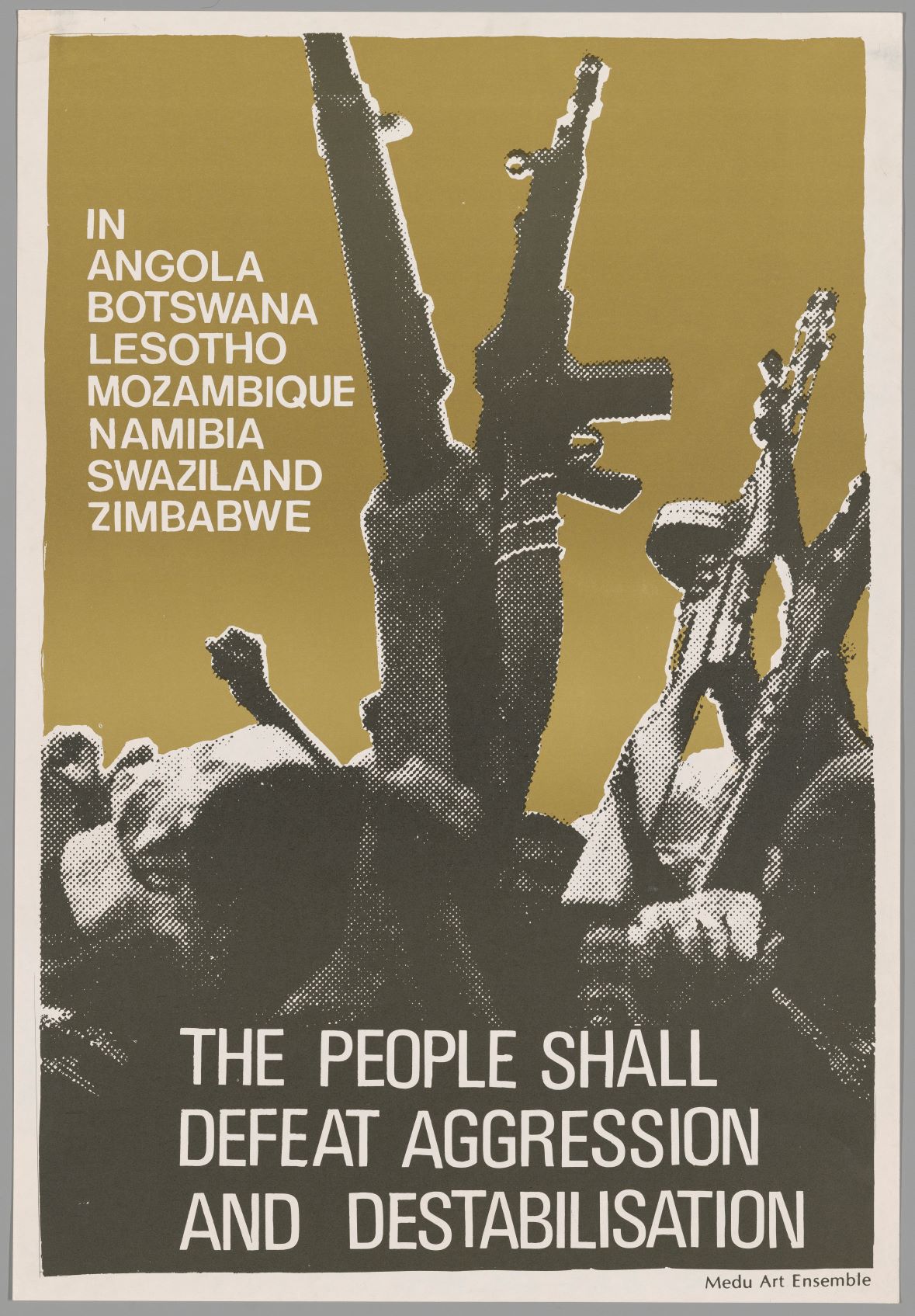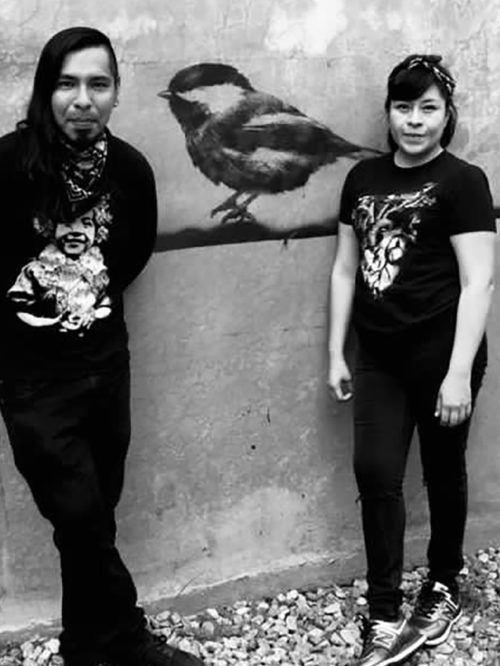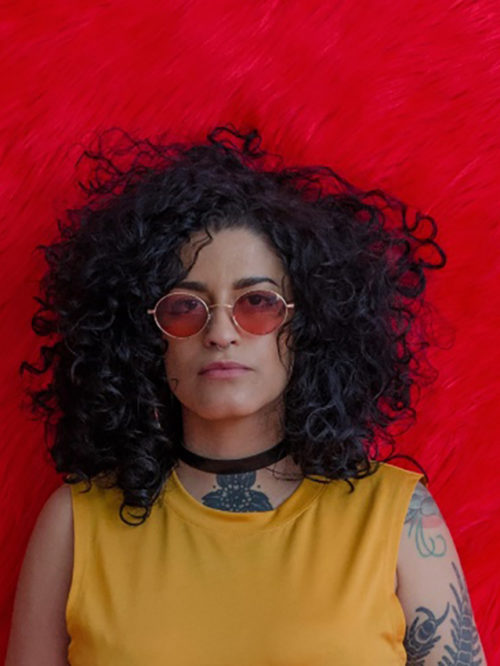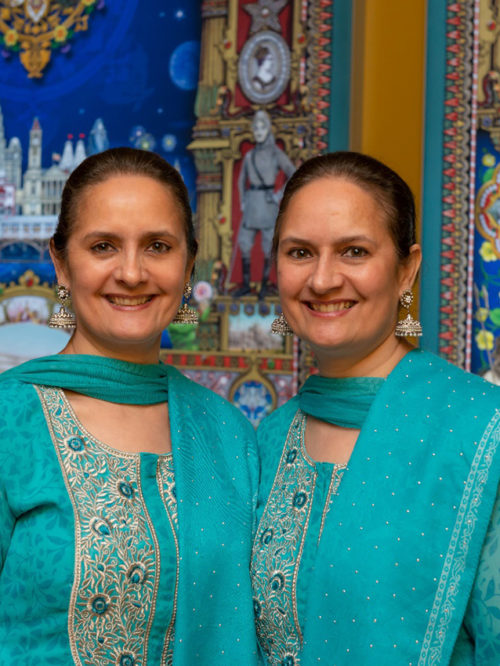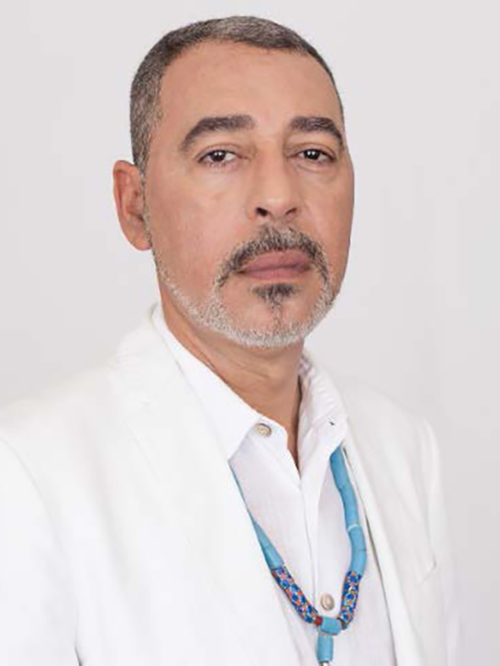Medu Art Ensemble
Namibia. The Sun will Rise, 1981
Women Unite Against Apartheid, 1981
The People Shall Govern!, 1982
Don’t Entertain Apartheid — Support the Cultural Boycott!, 1982
The People Shall Defeat Aggression and Destabilisation, 1983
This Is Our Land [Soweto], 1984
The Art Institute of Chicago
“The act of creating art is not different from the act of building a bridge – it is the work of many hands.”
Thami Mnyele
The Medu Art Ensemble was a group of South African and international artists from the visual arts, theatre, music and literature who came together in 1978 as a reaction to racial segregation and the politics of apartheid. The group was founded by Serote and Thamsanqa (Thami) Mnyele. They called themselves “Medu”, which means “roots” in Sepedi: after all, of them operated from the underground or exile. Many of the Medu members were politically persecuted.
Their posters, mainly offset lithographs and silkscreens, invited easy reproduction and were distributed by the thousands in the townships. They show calls for protest against social and economic oppression, oppose the segregationist policies of the apartheid regime and criticise the effects of colonialism. Many motifs call for pan-African solidarity and demand more education and culture. The Medu members understood their art as a collective craft in the service of political resistance.
The Medu Art Ensemble (the artists lived and worked in South Africa) was a collective of South African and international artists working in film, graphics, theatre, music, photography, poetry, literature and publishing who came together in 1978 in response to racial segregation and apartheid policies. The group was founded by Serote and Thamsanqa (Thami) Mnyele. They called themselves Medu, which means “roots” in the Sepedi language, as they operated in the underground or from exile. Many Medu members were politically persecuted. Their posters – mainly based on offset lithographs and silkscreen prints – call for protest against social and economic oppression and criticise the effects of colonialism.
Medu Art Ensemble/ Thamsanqa (Thami) Mnyele
Namibia. The Sun will Rise, 1981
Reproduction | 610 × 428mm | A2
The Art Institute of Chicago
Medu Art Ensemble/ Thamsanqa (Thami) Mnyele, Michael Kahn, Tim Williams
Women Unite Against Apartheid, 1981
Reproduction | 422 × 302mm | A2
The Art Institute of Chicago
Medu Art Ensemble/ Judy A. Seidman
The People Shall Govern!, 1982
Paper | Reproduction | 428 × 610 mm | A2
The Art Institute of Chicago
The bold slogans on this poster quote from the Freedom Charter of the South African Congress Alliance (Congress of the People). This document outlined the core principles for creating a just post-apartheid society. The picture was taken by the photographer Eli Weinberg, member of the South African Communist Party and supporter of the anti-apartheid movement, during the public meeting where the Charter was formally ratified in 1955. The Charter had been drafted by the ANC by sending fifty thousand volunteers into townships to consult people about what changes would be necessary to realise such a society. They summarised these thousands of demands into 10 key points, first and foremost “The People Shall Govern!”.
Medu Art Ensemble/ Judy A. Seidman
Don’t Entertain Apartheid — Support the Cultural Boycott!, 1982
Gaborone | Silkscreen | Reproduction | 435 × 610 mm | A2
The Art Institute of Chicago
In 1968, the United Nations General Assembly passed a resolution calling for the worldwide suspension of cultural and educational exchange with institutions that perpetuated apartheid. The United States rejected the resolution, and American companies profited from ignoring the boycott. Musicians like the Beach Boys, Cher, Curtis Mayfield, Queen and Tina Turner made millions performing in South Africa.
In the run-up to the 1982 Medu Festival of Culture and Resistance, Medu members developed a poster to promote the cultural boycott as its key principle. This poster responds to the actions of American soul singer Millie Jackson, who performed in South Africa despite a plea from a Black Consciousness arts organization that she not.
Medu Art Ensemble/ Thamsanqa (Thami) Mnyele & Judy A. Seidman
The People Shall Defeat Aggression and Destabilisation, 1983
Paper | Reproduction | A2
The Art Institute of Chicago
Medu Art Ensemble/ Thamsanqa (Thami) Mnyele, Michael Kahn, Gordon Metz
This Is Our Land [Soweto], 1984
Paper | Reproduction | 450 × 580mm | A2
The Art Institute of Chicago
These posters were conceived in response to protests that erupted on September 3, 1984, in South Africa’s Vaal Triangle region over rent increases proposed by local town councils. The protests ignited rent boycotts in predominantly black townships such as Alexandria, Soweto, and Tembisa. By withholding rent, protestors refused to finance their own segregation from city centres and their relegation to the meagre “matchbox” homes imposed on them by the apartheid state. Medu printed the poster commercially as a template so that the names of specific townships could be inscribed through screen printing, as in the “Soweto” poster.


